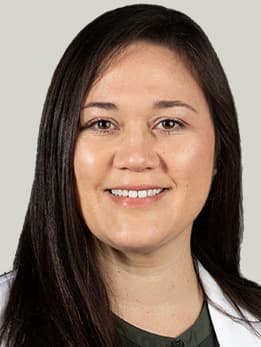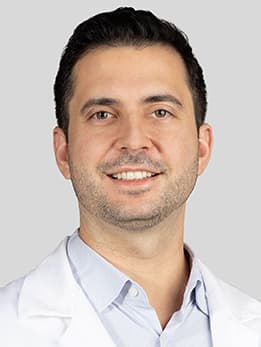Orthopaedic Fracture Care
Managing Complicated Joint Fractures
There are millions of broken bones each year. Any type of fracture (broken bone) can be painful and requires prompt medical attention and care. The orthopaedic specialists at the University of Chicago Medicine care for all types of fractures in children and adults. We specialize in treating complicated fractures that require highly focused care, particularly those that involve the joints in the ankle, knee, hip and elbow.
Bone Fracture Risks & Causes
We treat patients who have breaks from falls, accidents or more. These injuries can be simple or complex and include:
- Isolated breaks
- Stress fractures
- Multiple fractures
- Fractures with joint involvement
- Open fractures (bone is exposed outside of a wound)
- Non-union fractures (fractures that do not heal)
- Mal-union fractures (fractures that heal incorrectly)
Our orthopaedic experts also understand that fractures can have numerous complications, such as shock, blood clots, wounds and tissue damage. We know how to identify and treat these coexisting conditions.
Treating Fractures
Our orthopaedic team has extensive experience in non-surgical and surgical therapies for all types of fractures in any part of the body. Our services and treatments include:
- Medication to ease and manage pain
- Splinting and casting to immobilize the bone
- Traction
- Internal fixation, including the implantation of plates, screws, pins and rods to set bones and facilitate healing
- External fixation, including pins, screws and rods placed outside the body to set bones and facilitate healing. External fixators are sometimes used prior to surgical treatment.
- Surgery, including minimally invasive surgery performed through small incisions
- Bone simulator (non-surgical) and bone grafting (surgical) for non-union fractures
- Evaluation of non-union fractures to identify why a bone did not heal correctly. For example factors such as diabetes, smoking or a thyroid condition may affect a bone’s ability to heal.
Advanced Treatments for Fractures
Bone mass peaks in the mid-30s and then slowly dwindles, so a misstep can mean a broken ankle, wrist, hip or spine. More than 2 million Americans age 50 or older suffer fragility fractures — broken bones related to osteoporosis — every year. Fragility fractures are seven times as common as heart attacks.








